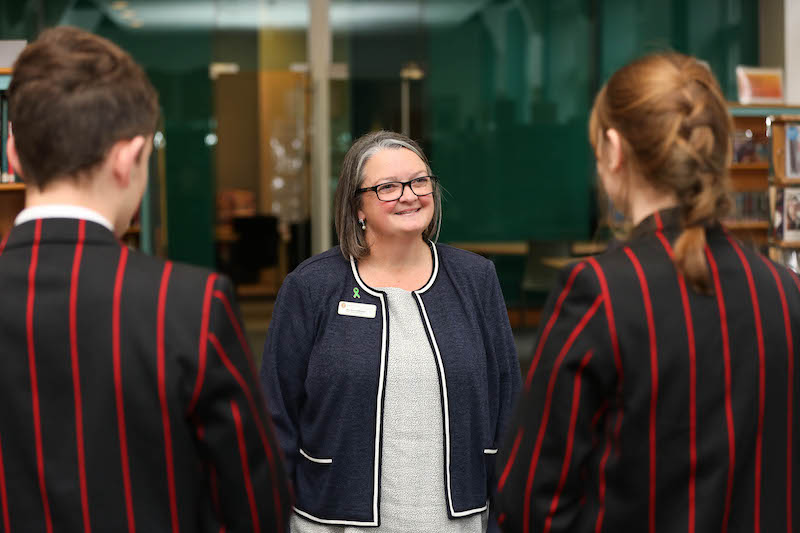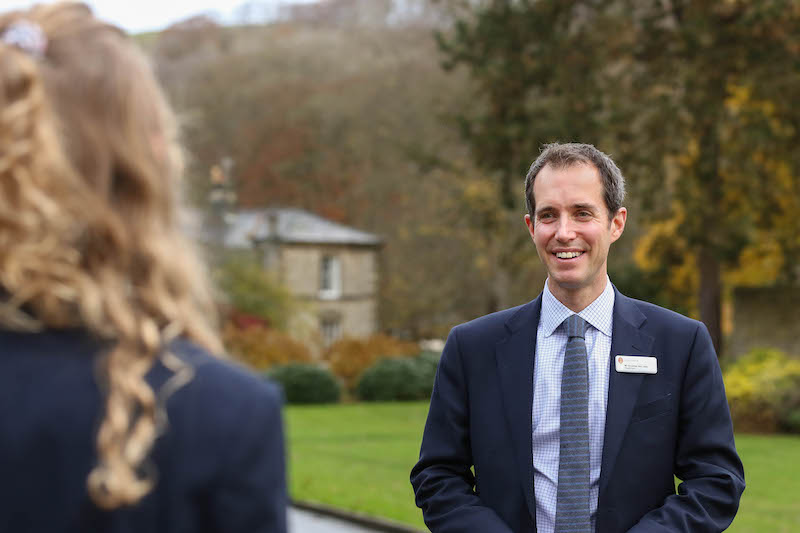According to The Children’s Society, one in six children aged 5-16 are likely to have a mental health problem, but 75% aren’t getting the support they need.
As Royals and celebrities continue to raise the profile of mental health, parents are increasingly looking for schools which offer a ‘whole child’ approach to education. We spoke to deputy head, Christian San Jose, of leading Yorkshire independent, Giggleswick School about the importance of pastoral care and a rounded education that puts as much emphasis on wellbeing as schoolwork.
Academic achievement is usually top of the checklist when parents are choosing a boarding school, but an equally important consideration is how well their child will be looked after.
At Giggleswick School, pastoral care has been placed at the centre of everything it does. It is embedded into lessons, co-curricula activities, boarding and day pupil life – even the school’s ethos of Participation, Respect and Ambition is representative of how important it is to develop the whole child.
By looking after a child’s mental health, their wellbeing and personal development, the school firmly believes it not only improves a child’s academic achievement, it helps them become more confident and well-rounded people.
Christian San Jose, Deputy Headmaster, oversees pastoral care at the school. He said: “Obviously schools are a place of learning, so everything we do has got to focus on provision of a good education. But it is also incumbent on us to ensure each child is safe, looked after and given the chance to thrive.
“Societal changes have really pushed good mental health and wellbeing to the forefront of people’s minds, and that’s a good thing. We should be looking out for each other and be comfortable having these conversations.
“What it’s not about is a lessening of expectations. In fact, it’s the opposite. By giving children the tools and support they need, and chances to do new things and pursue their own interests, we are able to push them to achieve and develop their confidence.”
Mr San Jose added: “One thing we’re very insistent on is a strong pastoral triangle between pupils, parents and us, and flow of information and conversations between each of the three corners of that triangle.
“It’s about making sure everyone – staff, pupils and parents – are aware of what support is being offered and where it’s available.”
The school has been recognised by the Leeds Carnegie Centre of Excellence for Mental Health in Schools, which is designed to ensure robust strategies are in place to enable a whole-school approach to mental health.
Emma-Jane Wharton, Head of Middle School and Assistant Pastoral Lead, said: “Having a comprehensive strategy is important, but it’s not just a piece of paper. We take it very seriously, there’s a lot of time spent planning and ensuring everything is followed through, and we go much further with various wellbeing activities and events held throughout the school.
“The single most important thing is children know they have different people to talk to. Every child has a tutor, who not only looks after their academic progress, but has regular contact with them over pastoral issues. There are tutorials dealing with various issues, we really encourage them to talk to their peers. Our upper sixth take part in a Peer Education Project, which gives them specific training in wellbeing and mental health, so pupils know they have people their age to talk to.
“Every member of staff plays a role and everyone has a responsibility for pupil wellbeing. In particular, the housemistresses and housemasters are crucial. They are like a head of household so get to know the children as individuals. And it’s not just boarders, every child belongs to a boarding house, including the day children, where they regularly get together and do things as a group. This creates a sense of somewhere they belong and a peer group they can talk to.”
She added: “On top of this, we have a fantastic medical centre, access to a counsellor as well as an independent listener who is not connected to the school in anyway.
“It’s really about encouraging students to seek early help if they need it, and clearly signposting and reminding them who they can have that conversation with.”
The school is aware of the importance of being active, with all students having access to sport at least three times a week. They are also encouraged to do other, small group activities outside of the normal school day where they find likeminded groups of kindred spirits.
The school’s CAS (Creative, Active, Service) Programme provides over 70 different activities which range from academic enrichment, sport, creative classes,
Mr San Jose added that a recurring issue is managing exam stress and worry about results.
He said: “The university aspirations for the Year 13s is always a challenge, and we know it’s increasingly difficult because university places are becoming more competitive. The messages that come through from everywhere to young people is ‘you’ve got to get on to the best courses’. So managing exam anxiety and their expectations is key, as well as being realistic with the children as to what’s open to them.
“Ultimately what it all comes down to is how we help them through the journey of school and making sure they’re well equipped and ready to go into the world, the workplace and all the various challenges we can face in our lifetimes.”



